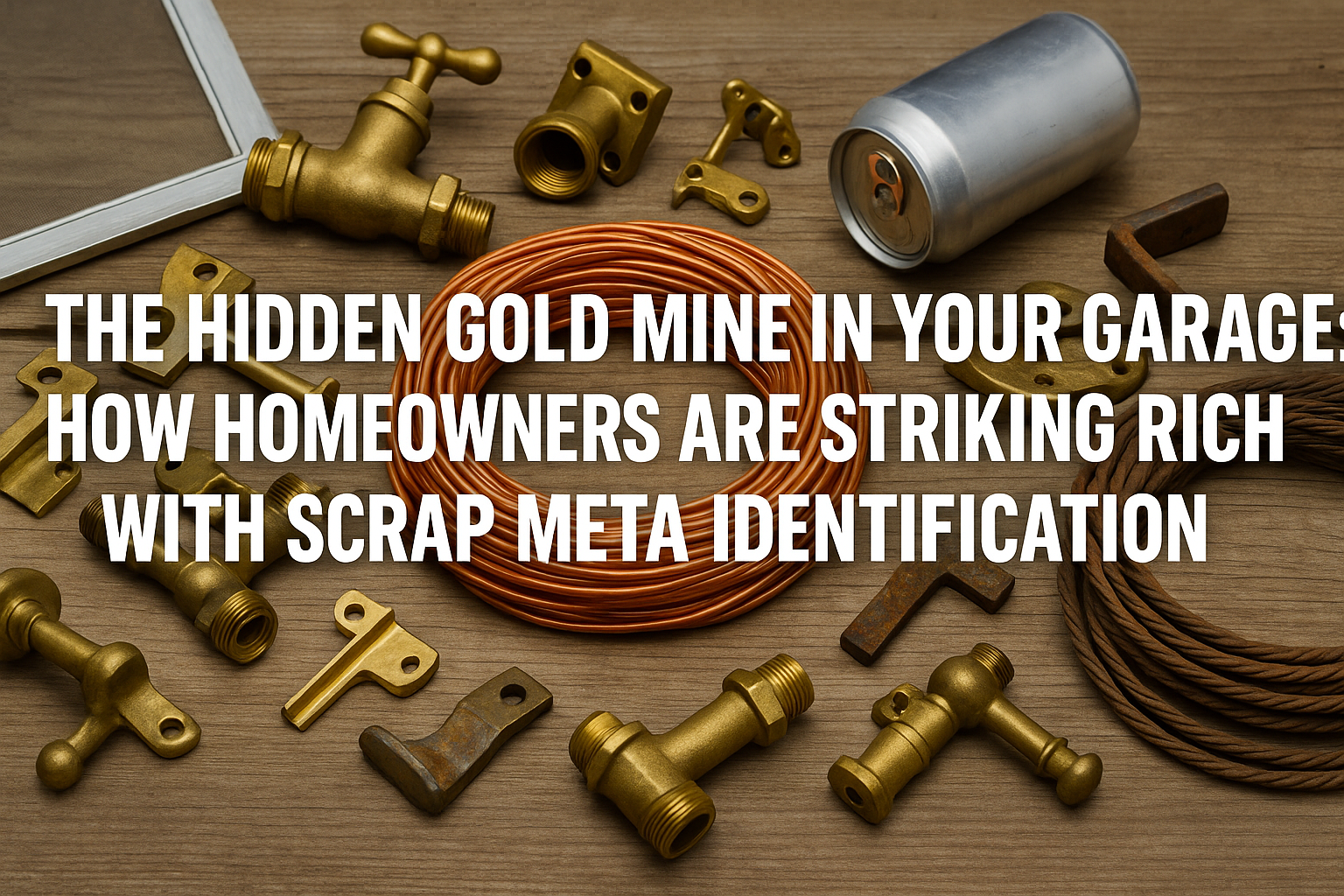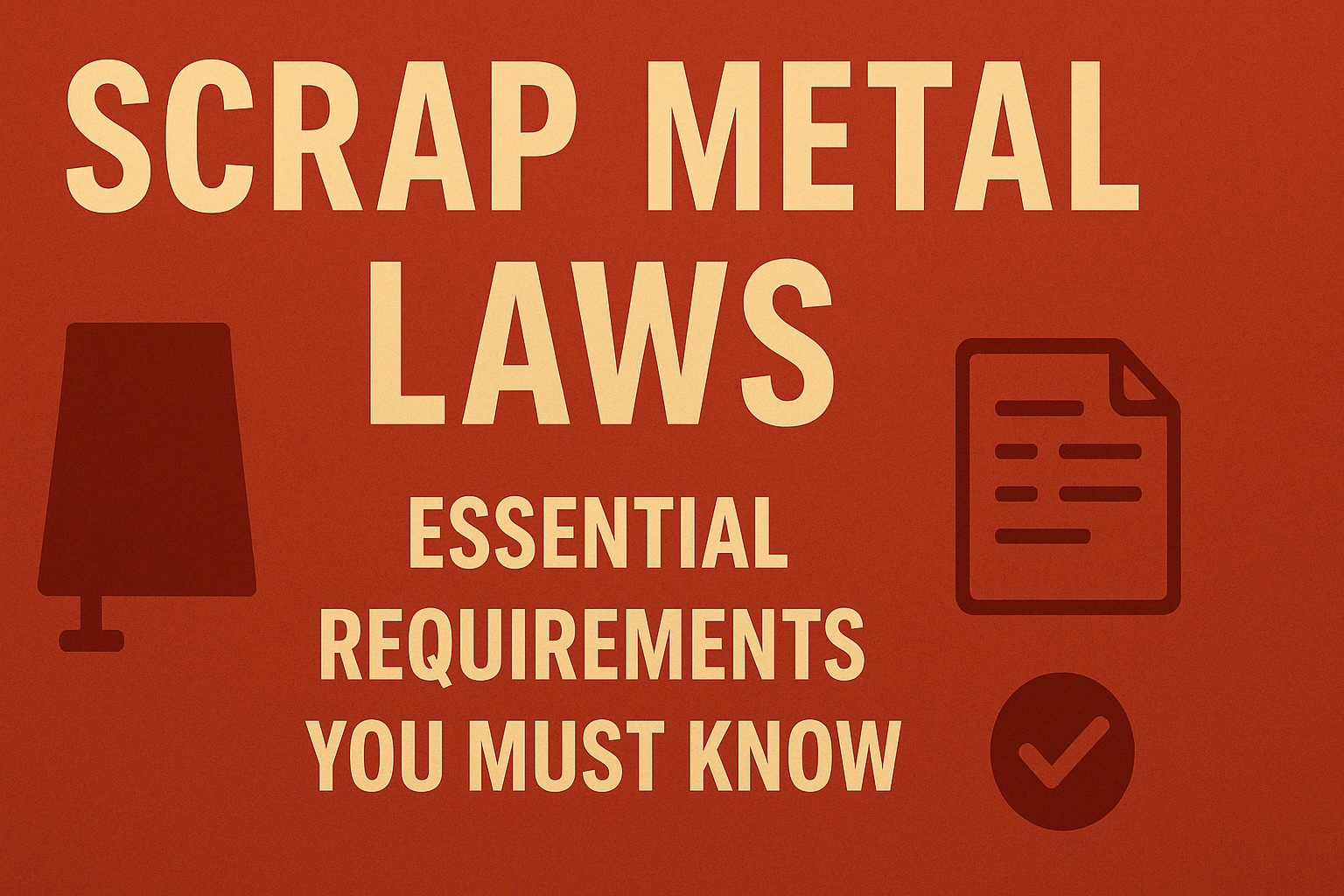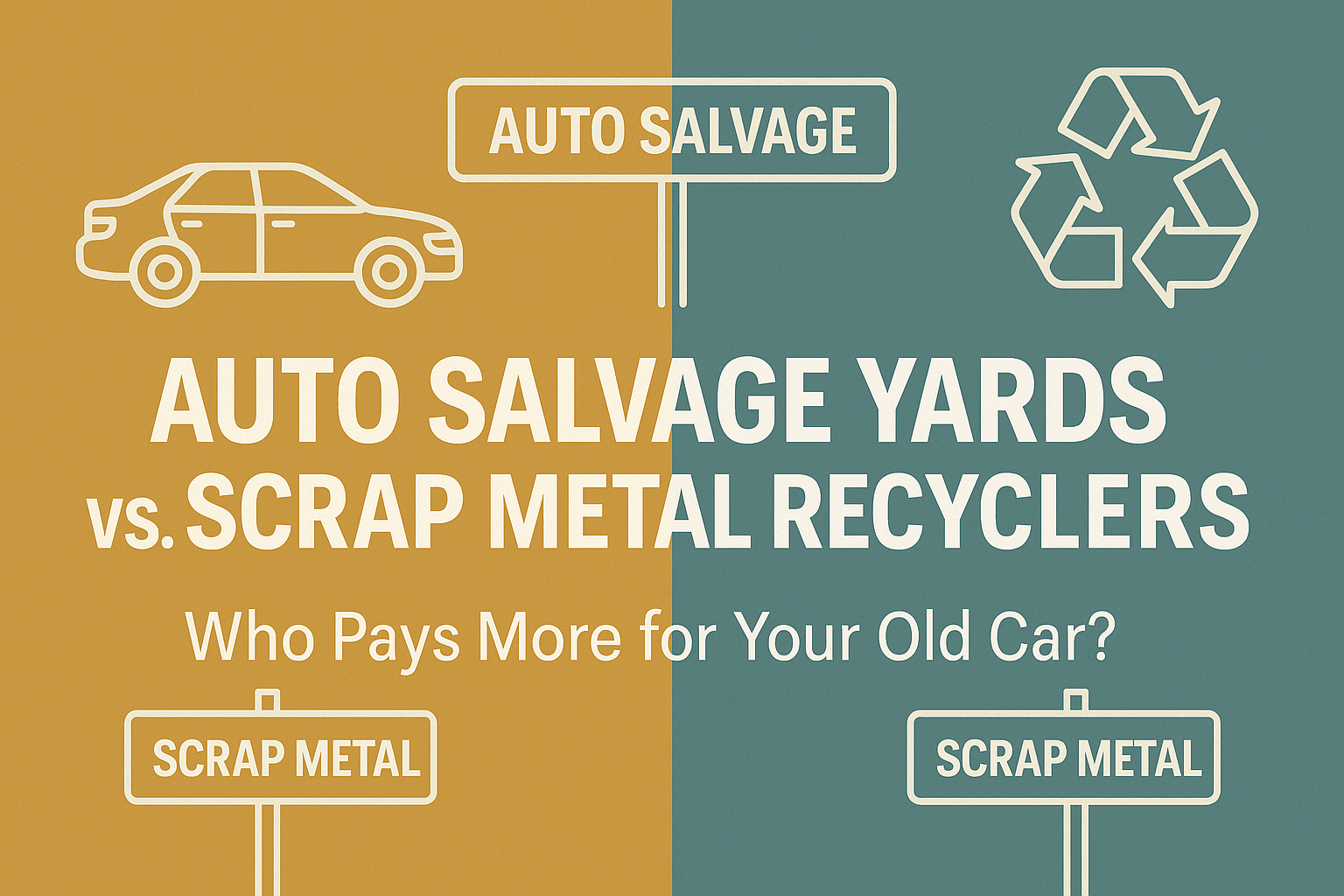The Hidden Gold Mine in Your Garage: How Homeowners Are Striking Rich with Scrap Metal Identification

Maria Rodriguez had been cleaning out her late father's workshop when she discovered something extraordinary hidden beneath decades of accumulated items. What looked like ordinary junk turned out to be a treasure trove worth over $800 in scrap metal. The copper piping from an old renovation project alone netted her $150, while the collection of brass fittings and aluminum components added hundreds more to her windfall.
Did you know?
Many homeowners are sitting on valuable scrap metal without realizing it. A single overlooked item could be worth much more than you think!
Rodriguez's story reflects a growing trend among homeowners who are learning to identify valuable metals hiding in plain sight throughout their properties. With copper prices reaching $3.45 per pound and red brass commanding $2.64 per pound in current markets, the ability to distinguish between ordinary metal and valuable scrap has become an increasingly profitable skill.
The surge in metal prices has created what industry experts call a "backyard gold rush", where ordinary household items can yield substantial returns. Unlike traditional recycling efforts focused on aluminum cans, today's scrap metal hunters are discovering that their homes contain far more valuable materials than they ever imagined.
🧲 The Science Behind the Search: Understanding Metal Classification
The foundation of successful scrap metal identification lies in understanding the fundamental difference between ferrous and non-ferrous metals. This distinction, which determines both the recycling process and the ultimate value of the material, can be determined through a simple test that requires nothing more than a household magnet.
How to tell the difference:
- Ferrous metals: Contain iron, are magnetic, usually have lower value (steel appliances, cast iron cookware).
- Non-ferrous metals: Do not contain iron, are generally non-magnetic, and fetch much higher prices (copper, aluminum, brass, bronze).
Quick Tip:
Keep a magnet in your toolbox. If it sticks, it's likely ferrous (less valuable). If not, you might be looking at a gold mine!
🟠 Copper: The Crown Jewel of Household Scrap
Copper stands as the most valuable commonly found metal in residential settings, and learning to identify it can dramatically impact your scrap metal profits. The distinctive reddish-brown color of pure copper makes it relatively easy to spot, but many homeowners overlook copper that has developed a green patina from oxidation.
Where to find copper at home:
- Electrical wiring (stripped wire = highest value)
- Old plumbing pipes (especially in pre-PVC homes)
- Water supply lines & heating system components
- Air conditioning units (refrigerant lines & coils)
⚡ Safety First:
Always ensure any electrical components are disconnected by a qualified professional before removal.
🪶 Aluminum: Lightweight but Valuable
While aluminum may not command the premium prices of copper, its abundance in household items makes it an excellent target for scrap metal collection. Aluminum and aluminum alloys are very lightweight, making them easy to handle and transport in large quantities.
Common aluminum sources:
- Window and screen door frames
- Patio furniture
- Old automotive parts
- Electrical panels and wiring in some homes
Maximize Value:
Remove steel screws and plastic before selling. Clean aluminum pays more!
🟡 Brass: The Golden Opportunity
Brass, an alloy of copper and zinc, offers some of the highest returns in the scrap metal market. Red brass commands $2.64 per pound and yellow brass about $2.03 per pound.
How to spot brass:
- Golden color, heavier than aluminum, non-magnetic
- Plumbing fixtures (faucets, valves, pipe fittings, showerheads)
- Door hinges and cabinet hardware (especially in older homes)
- Decorative items and certain electrical components
Pro tip:
Use the magnet test. If it looks gold but isn't magnetic, check the weight—it's probably brass!
🧲 The Magnet Test: Your Primary Tool
The magnet test serves as the foundation of all scrap metal identification efforts. All you have to do is find a magnet and hold it against your metal:
- Sticks: Magnetic metal (ferrous, less valuable)
- Doesn't stick: Non-magnetic (non-ferrous, potentially valuable)
But don't stop there!
Additional identification tricks:
- Copper: Reddish-brown, soft, green when oxidized, dull thud when struck.
- Aluminum: Light, silvery, may develop white oxidation.
- Brass: Gold, heavy for its size, musical "ring" when struck.
🛠️ Advanced Identification Techniques
Seasoned scrap collectors use more than just magnets. Try these:
- Spark test: No sparks? Likely non-ferrous (do this safely!)
- Sound test:
- Aluminum: Flat, dull
- Brass: Clear ring
- Copper: Muted thud
- Density/weight: Brass is much heavier than aluminum for the same size.
- File test: File a small spot—color and texture reveal what’s under paint or oxidation.
🏡 Common Household Sources
Where to hunt for valuable metals at home:
- Kitchen: Copper-bottom cookware, brass fittings, small appliances (motors = copper!)
- Bathroom: Old faucets, shower valves, and other brass fixtures
- Garage/workshop: Scrap from projects, old copper wire, aluminum wheels, radiators
- HVAC: Ductwork (sometimes aluminum), heat exchangers, refrigerant lines (copper!)
Look everywhere:
Hidden value is often found in places people forget—attics, basements, old renovation leftovers.
🧹 Preparation and Maximizing Value
How to get top dollar:
- Copper: Strip insulation, remove attachments. "Bright & shiny" wire pays the most!
- Aluminum: Remove screws, brackets, plastic, and other non-aluminum items.
- Brass: Identify and remove surface treatments (chrome, paint) but avoid deep scratches.
Organize your haul:
Separate metals by type and cleanliness before heading to the scrapyard.
📈 Market Timing and Current Opportunities
Metal prices move with the market. Recently, prices for aluminum, stainless steel, steel, brass, and bronze have stayed stable—great for consistent profit.
What drives price?
- Global demand and supply
- Construction seasons
- Renovation booms
Stay informed:
Check local scrap prices online before selling. Sometimes holding your scrap for a month can mean a big jump in payout!
⚠️ Safety and Legal Considerations
- Never do electrical or plumbing work unless you're qualified.
- Follow all local codes and recycling rules.
- Some yards require ID to prevent theft; bring documentation.
- Dispose of hazardous materials safely (refrigerants, asbestos, lead paint).
🏆 Final Thoughts
Identifying and collecting valuable scrap metals from your home offers both environmental benefits and real cash opportunities.
By mastering the basics—especially the magnet test—you can transform "junk" into real money.
Success Tip:
Practice makes perfect. The more you learn to identify and sort, the more profitable (and fun) your treasure hunt becomes.
In a world where sustainability and smart resource use are increasingly valuable, these skills put money in your pocket and help the planet at the same time. Happy hunting! 🏅
Ready to Turn Scrap Into Cash?
-
Find the Best Scrap Yards Near You:
Use our advanced search tools to locate top-rated scrap yards by zip code, state, or city. Start your search now -
Estimate Your Profit Instantly:
Try our Scrap Metal Calculator to see how much your old copper, brass, or aluminum could be worth before you sell. -
Check Today’s Metal Prices:
Stay informed with our US Metal Price Dashboard and never miss the best time to cash in.
Unlock the hidden value in your garage—start your scrap metal journey with FindScrapYardNearMe.com!
Explore More Articles
View All Articles
Alabama Scrap Metal Laws: Essential Requirements You Must Know in 2025
Alabama's scrap metal industry operates under strict regulations designed to combat theft and ensure legitimate transactions. Whether you're a scrap yard owner, automotive dismantler, or individual selling metal, understanding these laws isn't just important—it's legally required.

Top 10 Scrap Yards in Alabama (2025)
Turn Your Old Metal into Cash, Boost Alabama's Economy, and Protect Our Planet

Post 1 of 3: Auto Salvage Yards vs. Scrap Metal Recyclers: Who Pays More for Your Old Car?
Discover the key differences between auto salvage yards and scrap metal recyclers, and learn how to get the best price for your end-of-life vehicle. Find out who pays more for your junk car and why.
Ready to Turn Your Scrap into Cash?
Find the nearest scrap yards and get the best prices for your metal recycling needs.